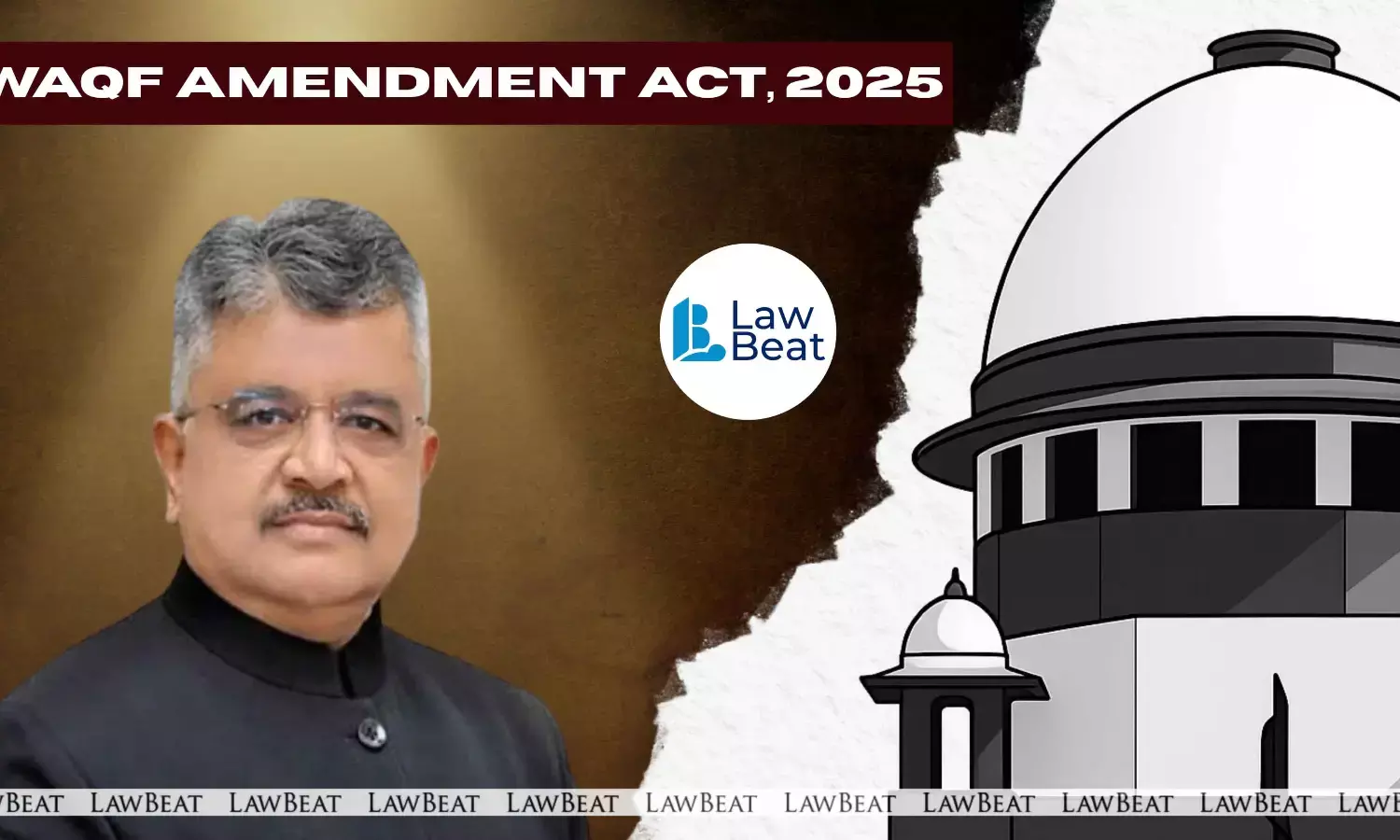Waqf Act|"Mere Legal Arguments Insufficient To Stay Statute": Centre Concludes Submissions Before Supreme Court

The Supreme Court resumed hearing petitions challenging the constitutional validity of the Waqf (Amendment) Act, 2025 before a bench comprising Chief Justice BR Gavai and Justice AG Masih.
Solicitor General Tushar Mehta robustly defended the legislation, arguing that the petitioners had failed to demonstrate a strong prima facie case to warrant a stay of the Act.
Mere Legal Arguments Insufficient to Stay Statute
Mehta opened by stating that three days of hearings had revealed no ex-facie evidence of unconstitutionality. He cautioned that mere legal propositions or hypothetical arguments do not justify halting the operation of a law duly enacted by Parliament.
Addressing the protection of Scheduled Tribes under Section 3(E), the Solicitor General emphasized that Scheduled Tribes in Scheduled Areas form a constitutionally protected class. He submitted that existing judgments affirm these protections and justified the exclusion of Sixth Schedule Areas from the Act’s applicability.
Responding to the Chief Justice’s question on the rationale behind this exclusion, especially concerns about land being grabbed exploiting social backwardness, Mehta highlighted the permanent nature of a waqf dedicated to Allah. He warned that interim reliefs could be quashed if the law was later struck down, but once land is declared waqf, the effect is irreversible. The Parliamentary Joint Committee, he added, recognized that some tribals practicing Islam maintain a distinct cultural identity.
Justice Masih disagreed, stressing that Islam is one religion without internal distinctions, and land acquired by misrepresentation should be void from the outset.
Legal Remedies and Historical Context
Invoking P. Ramareddy v. Andhra Pradesh, Mehta submitted that laws violating Article 14 can be invalidated post-final hearing, but that alone does not justify an immediate stay. He pointed out that state law already restricts tribal land purchase, and misuse of waqfs could be addressed by courts.
Mehta traced the evolution of waqf laws, noting the deletion of Section 104 in 2025, which had previously allowed non-Muslims to create waqfs, sometimes to defraud creditors. He clarified that while non-Muslims cannot create waqfs now, they remain free to donate property to waqfs, as reflected in Section 71.
The SG noted past legislative attempts to regulate waqfs, including a 1976 Committee’s call for registration to prevent misuse, leading to a 1984 amendment that was never enforced and later repealed.
Litigation and Limitation Provisions
Mehta defended the provision barring unregistered waqfs from litigation, pointing to its precedent in trust laws like the Bombay Public Trusts Act. He emphasized that the Limitation Act now applies to waqfs, ensuring timely suits.
He posed the question: if limitation laws apply uniformly, does that alone justify halting the Act?
Challenges on Religious and Federalism Grounds
Senior Advocate Rajeev Dwivedi, representing Rajasthan, contended that “waqf by user” is not a fundamental Islamic practice, citing judgments from the Ram Janmabhoomi verdict. He traced the doctrine to colonial jurisprudence and emphasized constitutional federalism, state laws and central laws cannot be equated.
Dwivedi stressed the constitutional presumption of legislative validity requires a strong prima facie case for a stay, which petitioners failed to meet.
Tribal Representation and Administrative Flexibility
Senior Advocate Ranjeet Kumar, appearing for a tribal organization and State of Haryana, supported the Solicitor General’s position on waqf creation criteria. Kumar confirmed his organization’s registration and backed the 1995 Act’s comprehensive nature.
Additionally, SG Mehta clarified that while the Executive Officer managing a waqf must be Muslim (Section 38), the CEO, who performs broader state-level administrative functions, may be appointed without religious restriction, an enabling provision rather than a mandatory rule.
The SG also cited a Supreme Court judgment holding the Waqf Board as a “State” under Article 12, negating arguments that it represents any specific community.
The Court adjourned for lunch and will resume at 2 PM to hear petitioners’ rebuttals.
Case Title: In Re: The Waqf (Amendment) Act, 2025
